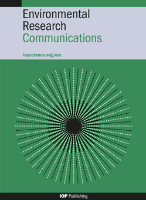
Environmental Research Communications
Scope & Guideline
Connecting research with real-world environmental solutions.
Introduction
Aims and Scopes
- Interdisciplinary Environmental Research:
The journal emphasizes research that crosses traditional disciplinary boundaries, integrating knowledge from ecology, social sciences, economics, and engineering to address complex environmental issues. - Climate Change Impact Studies:
A significant focus is placed on the impacts of climate change, including extreme weather events, shifts in biodiversity, and socio-economic effects, providing valuable insights for policymakers and stakeholders. - Sustainable Development and Management Practices:
Research promoting sustainable practices in urban development, agriculture, and resource management is a core area, aiming to balance economic growth with ecological integrity. - Technological Innovations for Environmental Solutions:
The journal publishes studies on innovative technologies and methodologies for environmental monitoring, pollution control, and resource efficiency, showcasing advancements in areas like remote sensing and machine learning. - Community Engagement and Policy Analysis:
Research addressing the role of public participation, awareness, and policy effectiveness in environmental governance is highlighted, emphasizing the importance of community involvement in sustainability efforts.
Trending and Emerging
- Climate Change Adaptation Strategies:
There is an increasing focus on research that explores adaptive strategies to cope with climate change, including community resilience and ecological restoration practices. - Digital Economy and Environmental Impact:
The intersection of the digital economy with environmental issues is emerging as a significant area of interest, examining how digital technologies can promote sustainability and reduce environmental footprints. - Biodiversity and Ecosystem Services:
Research on biodiversity conservation and the assessment of ecosystem services is trending, highlighting the importance of maintaining ecological health for sustainable development. - Public Participation in Environmental Governance:
There is a growing emphasis on studies exploring the role of public engagement and social dimensions in environmental governance, reflecting a shift towards more inclusive decision-making processes. - Innovative Waste Management Solutions:
Research focusing on innovative approaches to waste management, including recycling technologies and circular economy principles, is increasingly prominent in recent publications.
Declining or Waning
- Traditional Environmental Monitoring:
Studies relying solely on conventional environmental monitoring methods are becoming less prevalent, as newer technologies and methodologies gain prominence. - Single-Disciplinary Approaches:
There is a noticeable decrease in research that focuses on isolated disciplinary perspectives, with a greater emphasis now on interdisciplinary approaches that combine multiple fields of study. - Localized Case Studies with Limited Generalizability:
Research that focuses solely on localized case studies without broader applicability or implications is diminishing, as there is a growing demand for studies that provide insights applicable to wider contexts.
Similar Journals
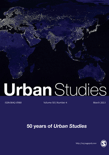
URBAN STUDIES
Transforming Urban Studies Through Critical Analysis and EngagementURBAN STUDIES, published by SAGE Publications Ltd, stands as a premier journal in the field of urban studies and environmental science, evidenced by its prestigious Q1 ranking in both categories for 2023. With an ISSN of 0042-0980 and an E-ISSN of 1360-063X, this UK-based journal has been disseminating pivotal research since its inception in 1964, and will continue to do so until 2024. As a leader in the social sciences, it ranks #11 out of 279 in the field of Urban Studies and #15 out of 219 in Environmental Science, achieving remarkable percentiles of 96% and 93% respectively. Although not an open-access journal, URBAN STUDIES provides a platform where scholars, practitioners, and students can engage with cutting-edge research, critical analyses, and innovative solutions addressing the complexities of urban environments. By publishing studies that encompass economic, social, and environmental dimensions of urbanization, the journal contributes significantly to the discourse on sustainable development and urban planning.

Acta Scientiarum Polonorum-Formatio Circumiectus
Advancing ecological insights for a sustainable future.Acta Scientiarum Polonorum-Formatio Circumiectus is a distinguished open-access journal published by WYDAWNICTWO UNIWERSYTETU ROLNICZEGO HUGONA KOLLATAJA KRAKOWIE, dedicated to advancing knowledge in the fields of ecological modeling, environmental engineering, nature and landscape conservation, and water science and technology. With a commitment to accessibility since its inception in 2006, this journal provides a platform for researchers, professionals, and educators to disseminate their findings to a global audience. Although currently categorized in the Q4 quartile across various ecological disciplines, the journal's aim is to foster critical discussions and innovative approaches to pressing environmental challenges. The journal is based in Poland, and its scope encompasses a wide array of research areas pertinent to contemporary environmental studies. Acta Scientiarum Polonorum serves as an essential resource in its field, encouraging empirical research and theoretical advancements that collectively contribute to sustainable development and environmental stewardship.
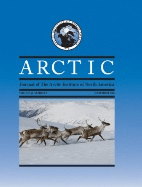
ARCTIC
Navigating the Complexities of Arctic ResearchARCTIC, published by the ARCTIC INSTITUTE OF NORTH AMERICA, is a distinguished journal dedicated to advancing the understanding of Arctic environments, ecosystems, and cultures. With an ISSN of 0004-0843 and E-ISSN 1923-1245, this journal has been a cornerstone in the field since its inception in 1973, continuously contributing to the disciplines of ecology, evolution, behavior, and systematics. Based in Canada at the University of Calgary, ARCTIC not only serves as a vital resource for researchers and professionals but also engages students with impactful studies and findings regarding the unique challenges faced by Arctic regions. Currently ranked in the Q3 quartile for Ecology, Evolution, Behavior and Systematics, and sitting at the 46th percentile in Scopus rankings within its category, ARCTIC remains dedicated to quality research while fostering interdisciplinary dialogue. Although it does not offer open access, the depth and breadth of the articles published here are invaluable for those invested in Arctic research and its ecological implications, making it an essential read for anyone seeking to contribute to or understand the complexities of the Arctic environment.

ENVIRONMENT DEVELOPMENT AND SUSTAINABILITY
Integrating Insights for Lasting Environmental ImpactEnvironment, Development and Sustainability is a leading academic journal published by Springer, dedicated to advancing the understanding of the intricate relationships between environmental processes, human development, and sustainable practices. With an ISSN of 1387-585X and an E-ISSN of 1573-2975, this journal provides a platform for high-quality interdisciplinary research that integrates insights from economics, geography, and environmental policy. As of 2023, the journal boasts an impressive impact factor ranking, positioned in the Q2 category for Economics and Econometrics, Q1 for Geography, Planning and Development, and Q2 for Management, Monitoring, Policy and Law. This impressive stature has earned it a significant Scopus ranking, placing it within the top tiers of its field, particularly in Social Sciences and Environmental Science. With a publication timeline extending from 1999 to 2024, the journal serves as a valuable resource for researchers, professionals, and students alike, promoting knowledge exchange and fostering groundbreaking ideas essential for sustainable development. Although it operates under a subscription model, the impact of its articles is profound, making it a pivotal outlet for researchers striving towards sustainability in a rapidly changing world.
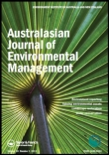
Australasian Journal of Environmental Management
Exploring innovative solutions in environmental management.The Australasian Journal of Environmental Management is a highly regarded publication in the field of environmental studies, published by Taylor & Francis Ltd. With an ISSN of 1448-6563 and an E-ISSN of 2159-5356, this journal serves as a pivotal platform for disseminating innovative research and insights pertaining to the management of environmental resources across Australia and broader geographical contexts. The journal has achieved impressive rankings, including a Q2 classification in Geography, Planning and Development and a Q3 in Management, Monitoring, Policy and Law for 2023, highlighting its relevance and impact within the academic community. Researchers and professionals are encouraged to contribute to its mission of advancing knowledge and practices in sustainable environmental management. With a publication history spanning from 1996 to 2024, the journal remains committed to fostering interdisciplinary collaboration and critical discourse on environmental challenges. While access options may vary, the significance of this journal as a resource for students and practitioners alike cannot be overstated, as it shapes contemporary perspectives on environmental policy and management.
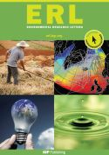
Environmental Research Letters
Connecting research with real-world impact.Environmental Research Letters is a premier, peer-reviewed journal published by IOP Publishing Ltd based in the United Kingdom, dedicated to advancing the field of environmental science. With an impressive Impact Factor and consistently ranked in the Q1 category for its focus on Environmental Science, Public Health, and Renewable Energy, this open-access journal has been a vital resource for researchers and practitioners since its inception in 2006. Covering a wide scope of topics including sustainability, environmental health, and innovative energy solutions, ERL aims to promote discourse and disseminate groundbreaking research that addresses global environmental challenges. As a leader in the field, it holds prestigious positions in Scopus rankings, ensuring that published works reach a wide audience, thus driving impactful change. Researchers, professionals, and students alike will find valuable insights and essential knowledge within its pages, making it a keystone publication for anyone invested in environmental advancements.

JOURNAL OF PLANNING EDUCATION AND RESEARCH
Driving Interdisciplinary Insights in Urban PlanningJOURNAL OF PLANNING EDUCATION AND RESEARCH, published by SAGE Publications Inc, stands at the forefront of academic discourse in the fields of planning, geography, and urban studies. Established in 1981 and continuing through to 2024, this esteemed journal features cutting-edge research and critical analyses that address the pressing challenges of urbanization and community development. As a recognized leader with prestigious Q1 rankings in Development, Geography, Planning and Development, and Urban Studies categories, it ranks 22nd out of 279 in Urban Studies, underscoring its influence with a remarkable 92nd percentile ranking in the Scopus database. Although the journal does not currently offer open access options, it provides a vital platform for researchers, professionals, and students dedicated to understanding and shaping the complex dynamics of urban environments. With a commitment to advancing knowledge and practice, the journal supports interdisciplinary scholarship and encourages the publication of innovative ideas that foster sustainable urban solutions.
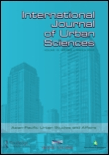
INTERNATIONAL JOURNAL OF URBAN SCIENCES
Shaping the Future of Urban ResearchThe INTERNATIONAL JOURNAL OF URBAN SCIENCES, published by ROUTLEDGE JOURNALS, TAYLOR & FRANCIS LTD in the United Kingdom, stands as a leading academic forum for innovative research in the fields of urban studies and geography. With its ISSN 1226-5934 and E-ISSN 2161-6779, this prestigious journal has been continuously converging insightful findings since 1998, providing a valuable platform for scholars and professionals to disseminate their work through both rigorous peer review and an influential global reach. Recognized within the top quartiles (Q1) for both Geography, Planning and Development and Urban Studies according to the 2023 metrics, it holds impressive Scopus ranks, being positioned at #36/279 (87th percentile) in Urban Studies. By encouraging interdisciplinary dialogue and addressing contemporary urban challenges, the journal aspires to inform policy, practice, and education within rapidly changing urban environments. Researchers, professionals, and students alike will find a wealth of relevant knowledge and cutting-edge research that drives the discourse on sustainable urban development and planning.
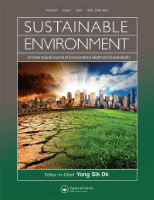
Sustainable Environment
Exploring the frontiers of sustainability research.Sustainable Environment, published by Taylor & Francis Ltd, is a pioneering journal dedicated to advancing the field of sustainability studies. Since its inception in 2021, this open-access journal has sought to provide a platform for multidisciplinary research that addresses pressing environmental challenges and sustainable practices. With a commitment to disseminating high-quality research swiftly, Sustainable Environment aims to engage researchers, policymakers, and practitioners across various domains, fostering scholarly dialogue and innovation. The journal covers a broad range of topics, including climate change, resource management, and sustainable development, making it a vital resource for anyone looking to contribute to and understand contemporary environmental issues. With its flexible access options, readers from all backgrounds can benefit from the latest insights and findings in sustainability research, thereby promoting a more sustainable future.
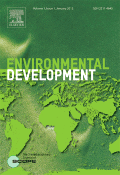
Environmental Development
Fostering global dialogue on sustainable development practices.Environmental Development is a premier academic journal published by Elsevier, dedicated to advancing the field of environmental science through interdisciplinary research and innovative practices. With a focus on geography, planning, and development, as well as management, monitoring, policy, and law, this journal provides a rigorous platform for scholars and practitioners to share insights that shape sustainable environmental policy and practice. Holding a prestigious Q1 ranking in both relevant categories and boasting impressive Scopus rankings - 62 out of 821 in Geography and 60 out of 399 in Environmental Science - Environmental Development stands out as a critical resource for those invested in the future of our planet. The journal emphasizes impactful research that addresses contemporary challenges, fostering dialogue across disciplines and geographical boundaries. With a commitment to high-quality research, it offers an important outlet for those aiming to influence environmental policy and developmental strategies globally. Join the growing community of researchers, professionals, and students engaged in promoting sustainable environmental practices through the knowledge shared in this esteemed publication.